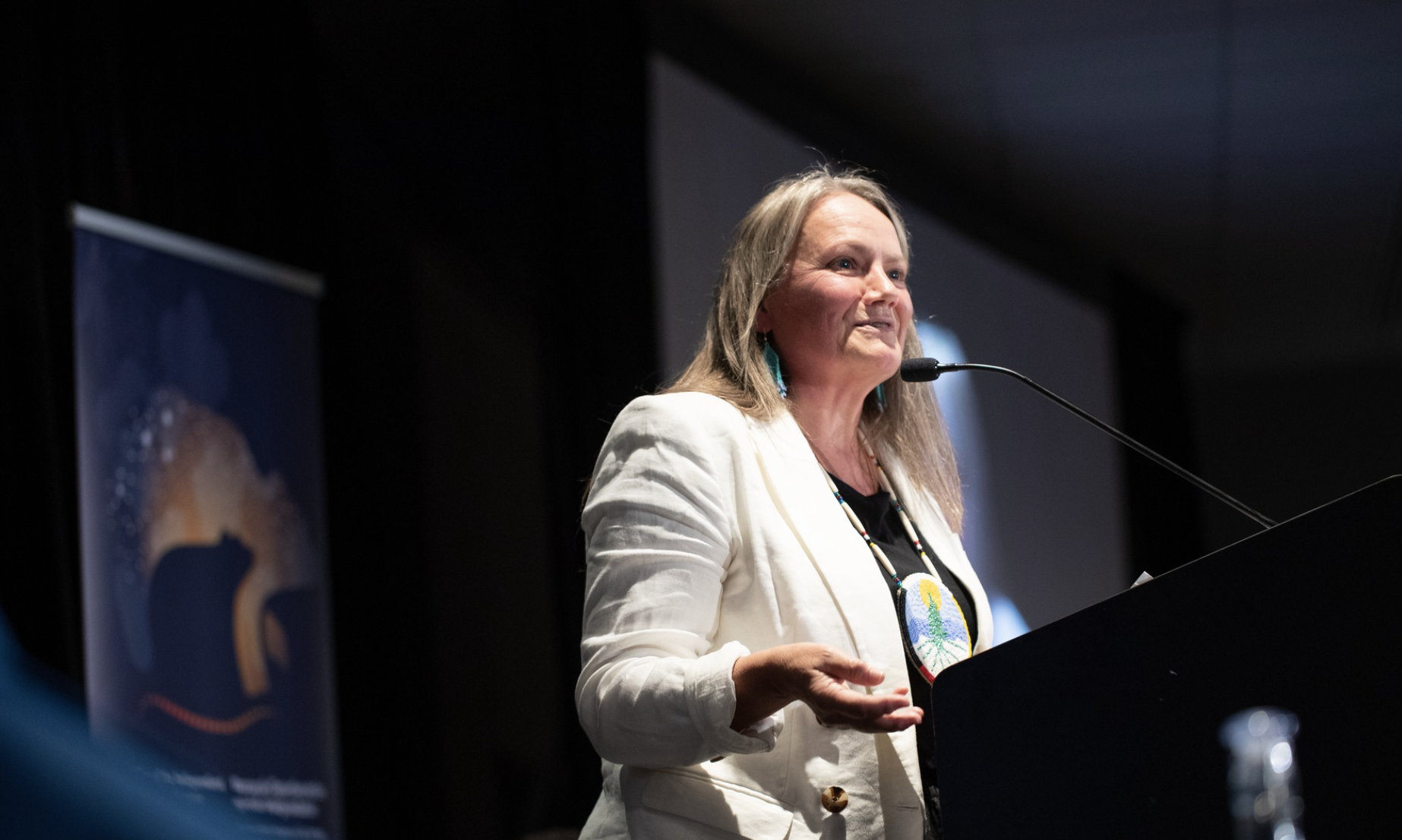
- Details
- By Jenna Kunze
This week, a group of Indigenous survivors, First Nations leaders, Canadian government officials, and church representatives gathered in Edmonton, Alberta, for the first national discussion on unmarked burials and the recovery of missing children from Indian residential schools.
The two-day event, which concluded today, was hosted by Kimberly Murray, who was appointed Independent Special Interlocutor for Missing Children and Unmarked Graves and Burial Sites associated with Indian Residential Schools in June 2022. The new position was created by the Canadian government in response to Indigenous leaders' requests and the increasing discoveries of burial sites throughout the country.
More than 150,000 First Nations, Métis and Inuit children were forced to attend government-funded residential schools in Canada between the 1870s and 1997. Many never came home.
Since May of 2021, the remains of 1,400 Indigenous children have been found in unmarked graves at the grounds of former residential schools across Canada, including 215 in Kamloops, 182 in Cranbrook, and more than 160 on Penelakut Island — all in British Columbia — and 751 in Marieval, Saskatchewan.
Over the next two years, Murray, a citizen of the Kanehsatake Mohawk Nation, will work with Indigenous communities to develop interim and final reports on the best treatment for unmarked graves and burial sites left over from the residential school system era. Her mandate also requires she deliver recommendations to the federal Minister of Justice and Attorney General of Canada by June 13, 2024. The position is attached to a proposed budget of $10.4 million over two years.
"I am committed to supporting the work of survivors and Indigenous communities to protect, locate, identify, repatriate, and commemorate the children who died while being forced to attend Indian Residential Schools," Murray said in a statement at the time of her appointment. "I pledge to do this work using my heart and my mind in a way that honours the memories of the children who never made it home."
On Tuesday, Murray began the first national discussion by introducing a chair to represent the missing children from the Indian residential school era. This chair will be at each national gathering on unmarked graves that Murray hosts over the next two years, she said.
Events at the Alberta gathering included breakout sessions and morning presentations by experts and community representatives on efforts to recover the missing children. Afternoon sessions—including recaps of the mornings—were live streamed and included summarized reports of breakout sessions, as well as government and church panels on how the respective entities are supporting the recovery efforts.
One journalist in attendance, Tanya Talaga, recounted a breakout session with three Indigenous leaders on what records exist, where they are located, and how a First Nations community can access them.
Talaga said some Nations, such as Saddle Lake Cree Nation, formed a reconciliation partnership with the Catholic Church to gain access to their residential school records.
"Why is this a good idea?" Talaga said. "It is important to note that the Catholic Church is not compelled or required to provide records. Each archdiocese makes that decision, and you need those records to conduct your investigations."
The reconciliation partnership includes: drawing up nondisclosure agreements, ensuring data management, and selecting a senior-level executive and lead investigators tasked with accessing the records.
"Of note, you have to be ready for what you're going to read and what you're going to uncover," Talaga said. "You have to know that you will be finding things out — maybe about your own family — that you didn't know."
Other breakout sessions included information on technology to locate unmarked gravesites and how it works.
Health support is available 24 hours a day by contacting the National Indian Residential School Crisis Line at 1-866-925-4419 or the Indian Residential School Survivors Society 24-hour crisis line at 1-800-721-0066.
Tell Us What You Think
More Stories Like This
‘This is who we are’: Northern Cheyenne Tribe reclaims cultural belongings from UMIndian Gaming Association Condemns CFTC Over Prediction Markets, Warns of Threat to Tribal Sovereignty
Committee Advances 20% Increase to Navajo Child Support Guidelines
Navajo Committee Advances $84M Transportation Improvement Plan
NCAI Passes Two Emergency Resolutions on Immigration Enforcement Activities
Help us defend tribal sovereignty.
At Native News Online, our mission is rooted in telling the stories that strengthen sovereignty and uplift Indigenous voices — not just at year’s end, but every single day.
Because of your generosity last year, we were able to keep our reporters on the ground in tribal communities, at national gatherings and in the halls of Congress — covering the issues that matter most to Indian Country: sovereignty, culture, education, health and economic opportunity.
That support sustained us through a tough year in 2025. Now, as we look to the year ahead, we need your help right now to ensure warrior journalism remains strong — reporting that defends tribal sovereignty, amplifies Native truth, and holds power accountable.
 The stakes couldn't be higher. Your support keeps Native voices heard, Native stories told and Native sovereignty defended.
The stakes couldn't be higher. Your support keeps Native voices heard, Native stories told and Native sovereignty defended.
Stand with Warrior Journalism today.
Levi Rickert (Potawatomi), Editor & Publisher


